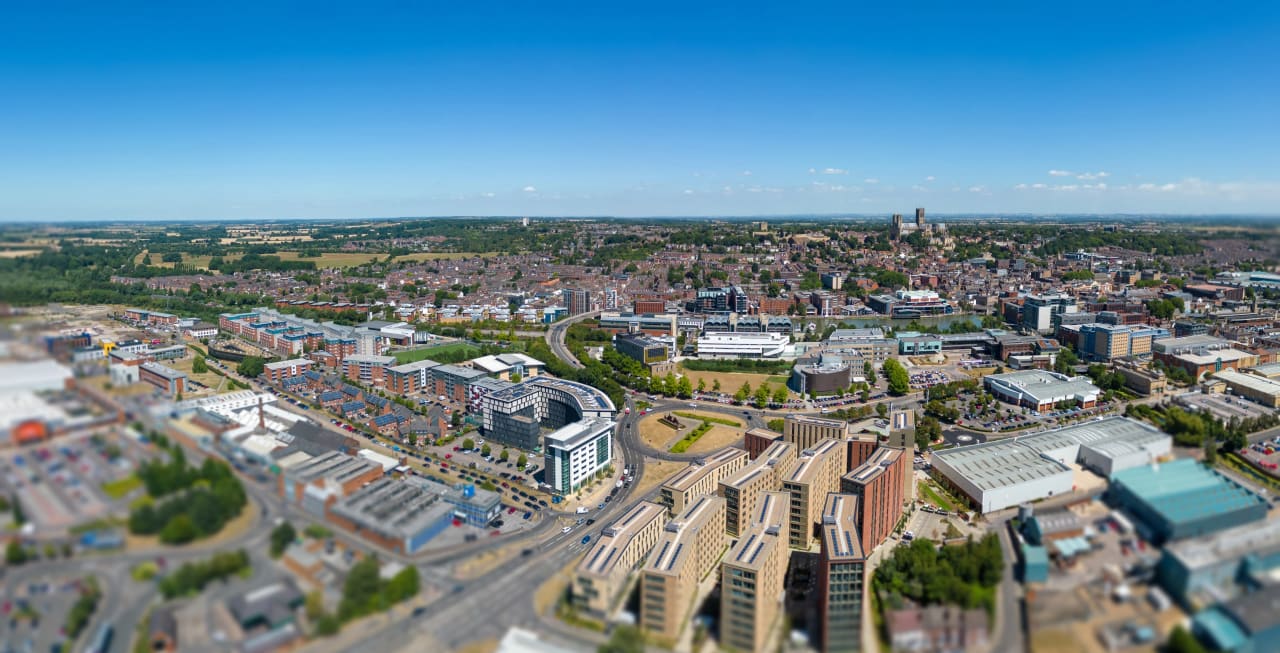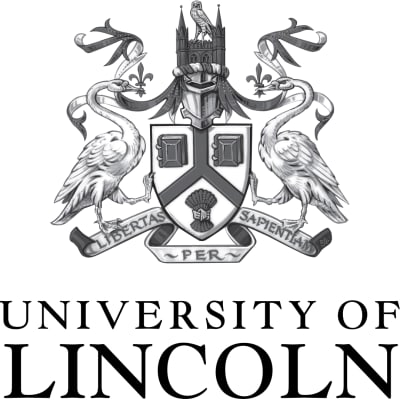
MA Journalism (War and International Human Rights)
University of Lincoln

Key Information
Campus location
Lincoln, United Kingdom
Languages
English
Study format
On-Campus
Duration
1 year
Pace
Full time, Part time
Tuition fees
Request info
Application deadline
Request info *
Earliest start date
Request info
* most of our postgraduate courses have no specific closing date for applications. Please allow enough time for your application to be considered prior to the start date. If you are an international student you may need to factor in time for your visa application. We would advise you to apply as soon as possible
Discover Lincoln Wherever You Are in the World
Our webinars, subject masterclasses, question and answer sessions, and student panel talks are a great way to discover what it is like to live and study at the University of Lincoln.
Introduction
MA Journalism (War and International Human Rights) focuses on the study of war reporting and international human rights. It provides an opportunity to analyse the role of the news media and journalism in conflicts, peace efforts, and human rights.
This challenging postgraduate programme offers students the chance to gain hands-on experience in print, broadcast and online media, and is designed to help students develop the practical and intellectual skills necessary for a career in the media. The final project enables students to focus on a specific area of journalism, war and international human rights.
The School of English and Journalism maintains close working relationships with the BBC and Lincolnshire Echo newspaper. On campus, there are opportunities to gain experience in community radio, multiplatform websites, student newspapers, television, and magazines.
Prioritising Face-to-Face Teaching
At the University of Lincoln, we strive to ensure our students’ experience is engaging, supportive, and academically challenging. Throughout the Coronavirus pandemic, we have adapted to Government guidance to keep our students, staff, and community safe. All remaining Covid-19 legal restrictions in England were lifted in February 2022 under the Government’s Plan for Living with Covid-19, and we have embraced a safe return to in-person teaching on campus. Where appropriate, face-to-face teaching is enhanced by the use of digital tools and technology and may be complemented by online opportunities where these support learning outcomes.
We are fully prepared to adapt our plans if changes in Government guidance make this necessary, and we will endeavour to keep current and prospective students informed. For more information about how we are working to keep our community safe, please visit our coronavirus web pages.
Research Areas, Projects, and Topics
Key research areas in the department include:
- War and the Media
- Journalism and Conflict Resolution
- International Human Rights for Journalists
- Core Broadcast
- Core Writing
- Law and Institutions
- Research and Professional Placement
- Final Project or Dissertation
Guest Speakers
During term time, prominent journalists give guest lectures to audiences of undergraduate and postgraduate students from the School. Recent speakers have included John Pilger, Nick Davies, William Lewis, Libby Purves, Dorothy Byrne, Angela Rippon, and Martin Bell.
Days Taught
Where possible, core sessions are scheduled on Thursday and Friday, although students may be required to attend on other days of the week depending on module options. Full-time students should expect approximately 12 hours of contact time per week and should be prepared to undertake at least two hours of self-study for every taught hour.
"This information was correct at the time of publishing (July 2023)"
Admissions
Curriculum
Advanced Research Methods (Core)
This module provides the opportunity to develop a methodological understanding and to receive support and advice on the final project. You will then be expected to prepare a written proposal for a dissertation, a documentary project, or a portfolio of articles.
Essential Reporting (Core)
This module introduces students to the processes of newsgathering and writing news and features for a range of platforms. It aims to develop a critical understanding of editorial processes in news organizations and a working knowledge of how news and feature ideas are generated and packaged for different markets and readerships.
International Human Rights (Journalism) (Core)
This module aims to highlight the importance of critical and comparative knowledge of human rights issues in the practice of journalism. You have the chance to explore human rights issues (such as privacy, confidentiality, and freedom of expression) that are particularly relevant to the practice of journalism.
Journalism Production (Core)
This module introduces students to the editorial and production skills required for multiplatform and digital news production. The module focuses on newsgathering and preparing news content for broadcast and online. Students can work in a newsroom environment under appropriate time constraints, experiencing the pressures of operating as a multimedia journalist across a range of broadcast and web-based platforms, including social media.
MA Journalism - Final Project or Dissertation (Core)
The Final Project or Dissertation module consists of either a dissertation, portfolio of articles, radio or television documentary, or chapters for a book or webpages. You are expected to spend the final term during the summer on self-directed learning, having already decided on the form of project that you will produce. You will be allocated your own tutor for support and guidance. This final project provides an opportunity to research and make an in-depth study of your chosen study area.
Media Law (Core)
This module introduces students to the areas of the law most likely to be encountered in the practice of journalism and the practice of PR and related communications activities. Students will investigate the interaction between journalism, PR, communications, and the law, and gain a clear insight into the relationships between journalists and officials, PR/communications practitioners, and their clients/employers, and how information is communicated to an increasingly diverse public.
Specialist Journalism Production (Core)
From a digital-first perspective and focusing, in particular, on news and feature content in your specialist field(s) of interest, this module aims to develop the key skills of journalism through regular practice, including newsgathering, writing and interviewing, and live output production with text and audio and video output as required. Online skills will be used throughout, including social media to drive consumers to the content. The journalism and features produced will be outward-facing, using techniques of electronic newsgathering, digital and non-linear editing, production/journalism for online and print, and an appropriate range of live news broadcasting techniques. In this module, you are expected to take up a work placement in one or several different media organizations of your choice. The module provides prior guidance, together with career advice. Tutors will help with research of the employment market, as you arrange international, national, or local work placements, and will support you as you build an individual career profile, CV, and work experience portfolio.
War and the Media (Core)
This module is about how the news media represent wars. It explores the challenges journalists face when reporting conflicts and studies how news management is used to control information during times of war. Conflict reporting has been transformed with new media technologies. The seminars examine the impact of new technologies on journalism and discuss alternative ways of reporting conflicts, such as peace journalism.
How You Study
Students can learn in lectures, seminars, and practical workshops. This will incorporate 'news days' which replicate industry newsrooms.
Teaching usually takes place on two full days per week. Where possible, core sessions are scheduled on Thursday and Friday, although students may be required to attend on other days of the week depending on module options.
How You Are Assessed
Assessments are a mixture of essays, presentations, portfolios of journalism, broadcast media packages, and timed examinations. However, it should be noted that assessments can be varied from time to time to reflect changes in good practice in both academic and vocational disciplines.
The University of Lincoln's policy on assessment feedback aims to ensure that academics will return in-course assessments to students promptly - usually within 15 working days of the submission date.
Students are required to do a ten-day work placement as part of the course.
Gallery
Program Outcome
How You Study
Students can learn in lectures, seminars, and practical workshops. This will incorporate 'newsdays' which replicate industry newsrooms.
Teaching usually takes place on two full days per week. Where possible, core sessions are scheduled on Thursday and Friday, although students may be required to attend on other days of the week depending on module options.
Scholarships and Funding
Several scholarship options are available. Please check the University of Lincoln website for more information.
Program Tuition Fee
Career Opportunities
Core modules are designed to support and prepare students for a career in journalism. There are a number of opportunities to gain relevant experience by working for campus media, including the community and student radio stations, a multiplatform website, and the student newspaper.